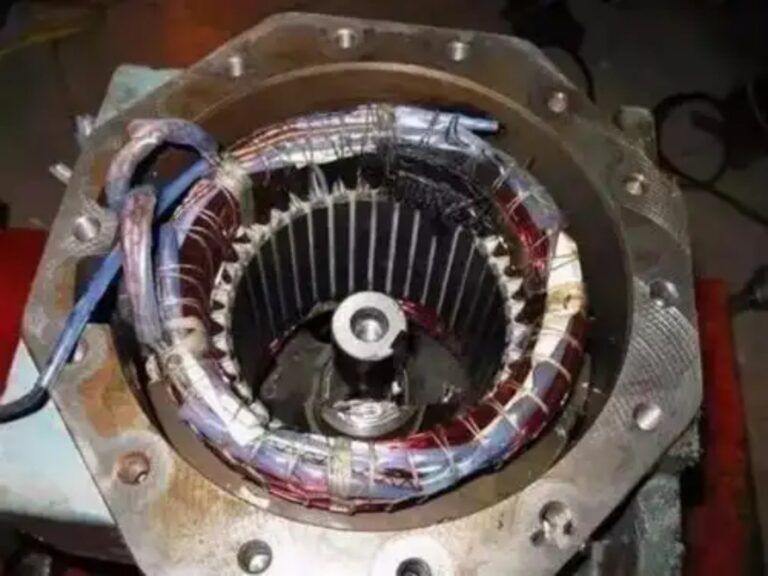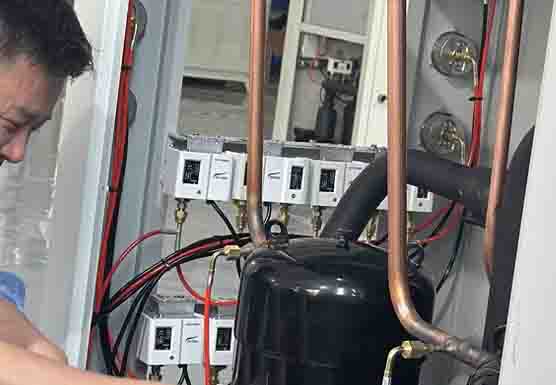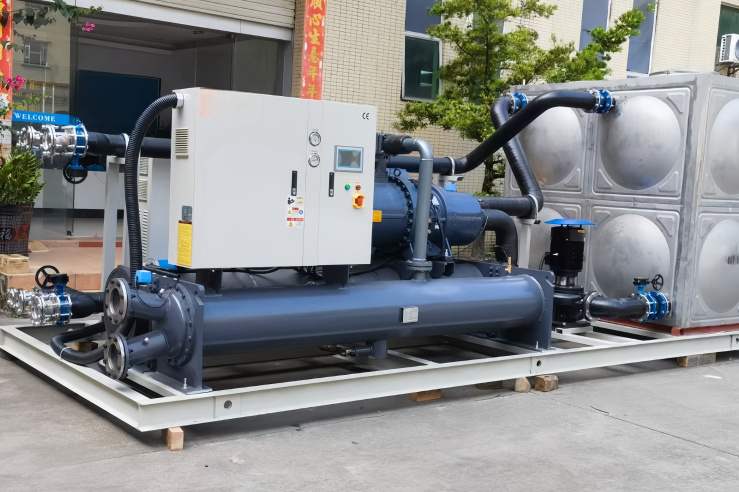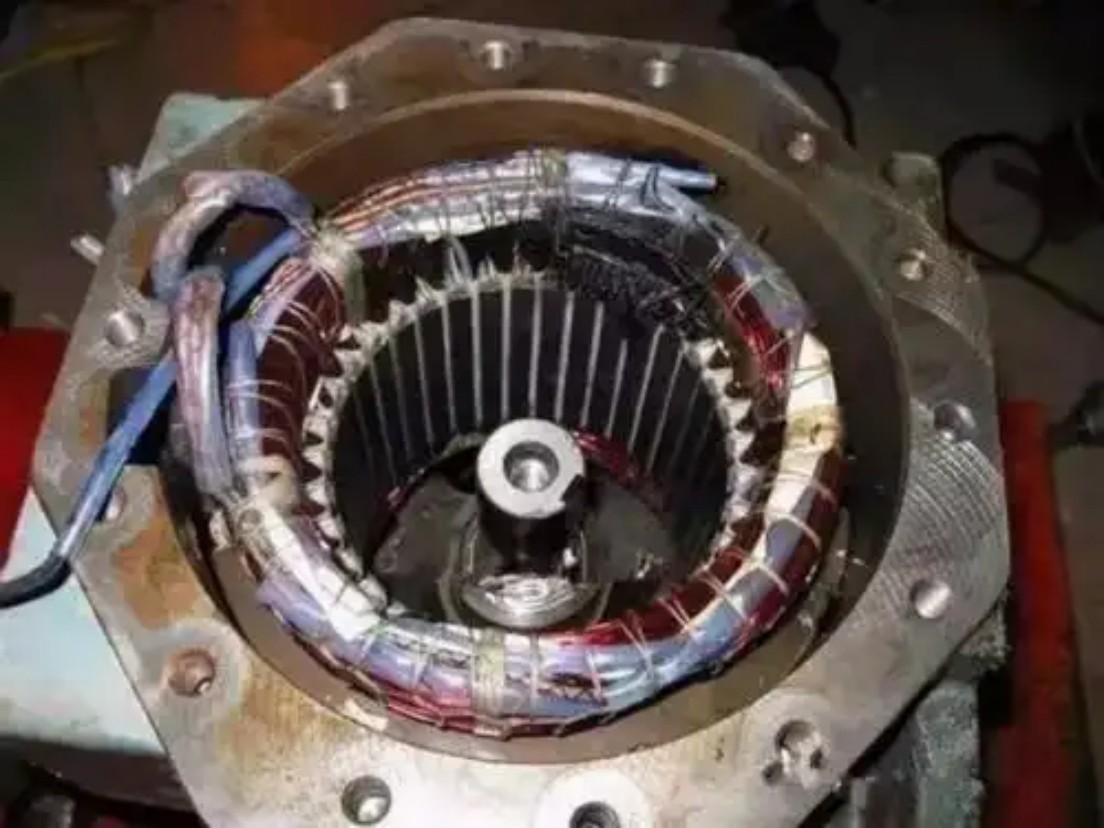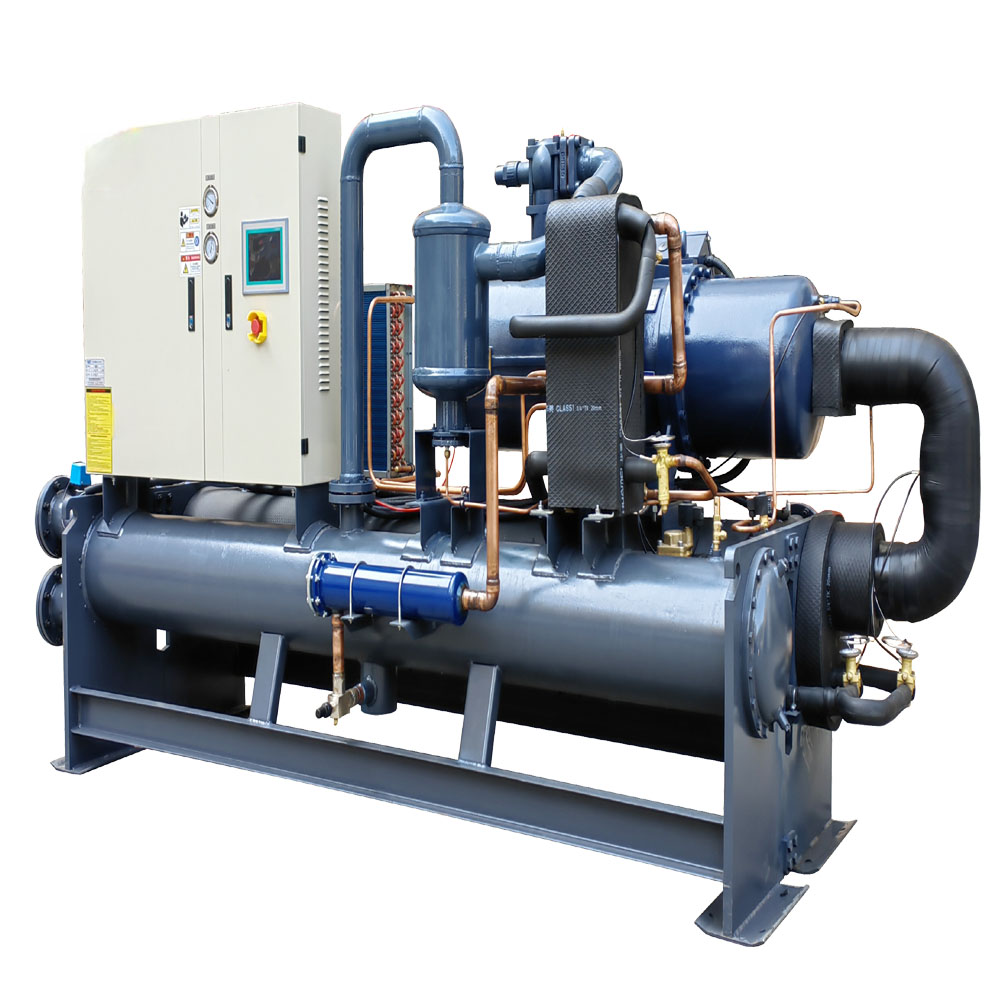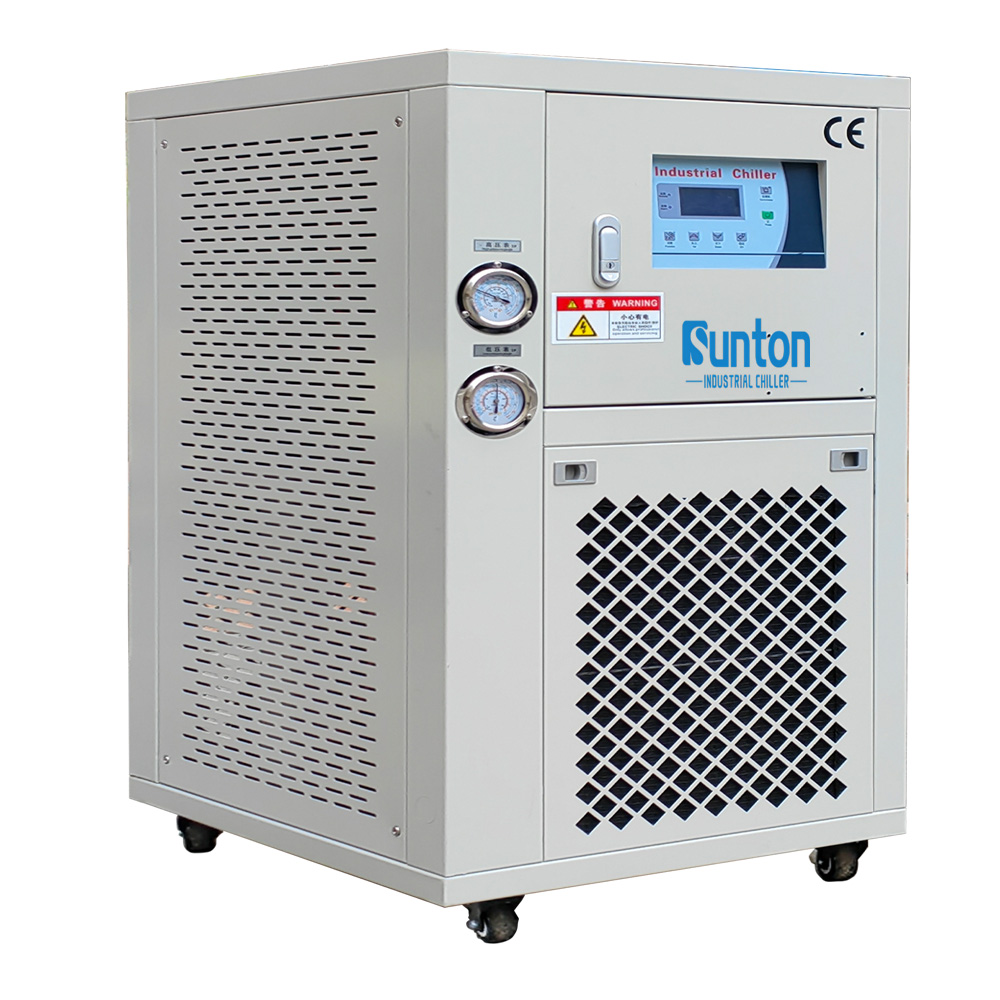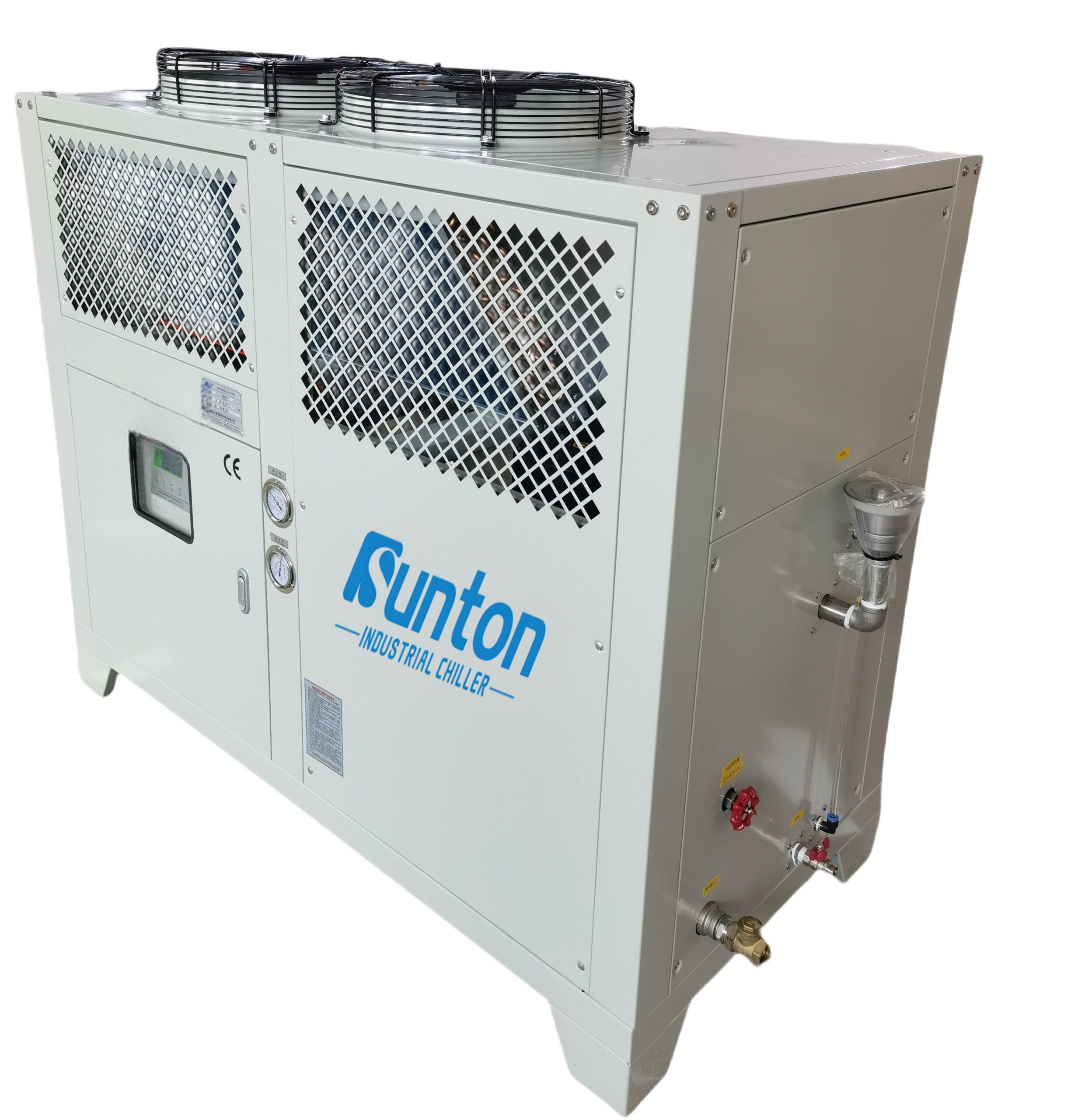-
Далиншань Индустриальный Гуандун
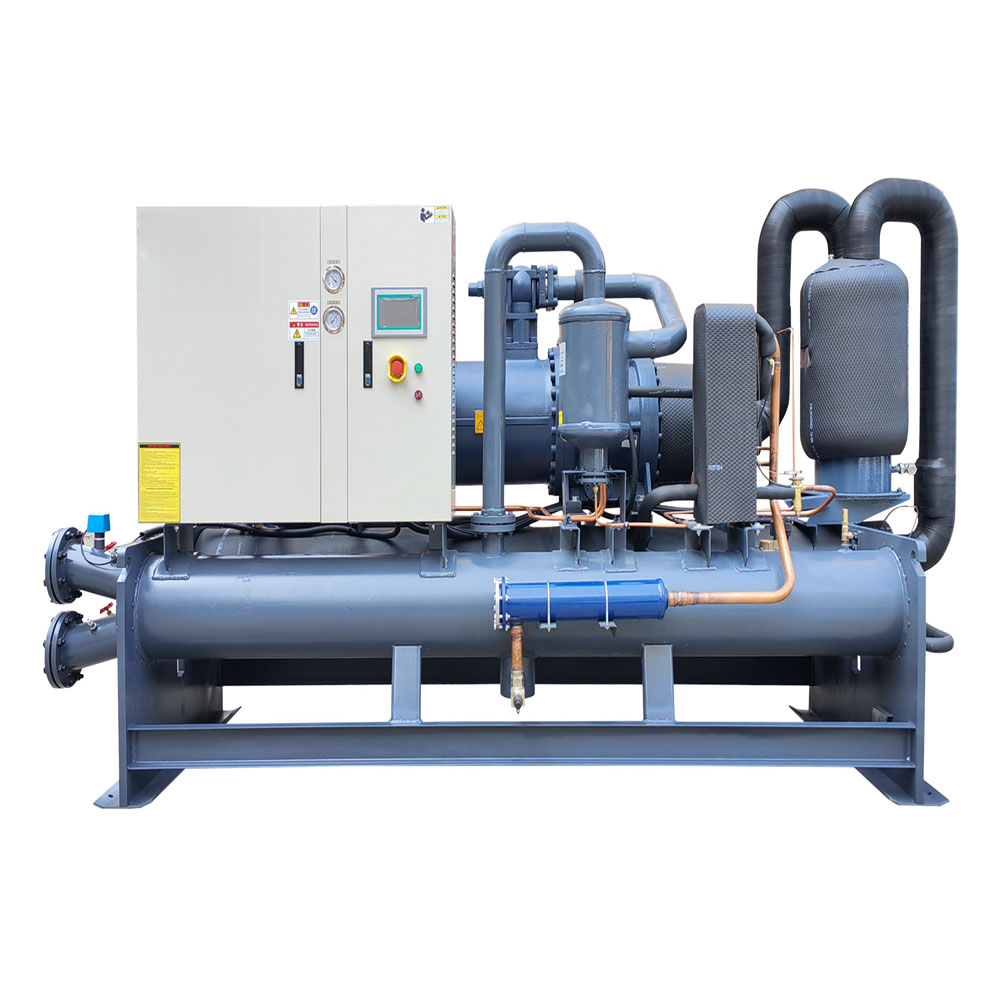
Как работает промышленный чиллер?
Раскрытие потенциала промышленных чиллеров: ваш путеводитель по оптимальным решениям в области охлаждения
В мире, где точный контроль температуры имеет решающее значение, промышленные чиллеры играют ключевую роль в различных секторах, включая Переработка пластика, Биогаз и биотопливо, Управление медицинскими отходами, Пищевая промышленность, Химическое производство, Фармацевтика, Производство электроники, и Здравоохранение Системы охлажденной воды часто используются в различных промышленных процессах. Эта статья предлагает всеобъемлющее руководство по работе, преимуществам и применению промышленных охладителей, помогая вам выбрать правильную систему для ваших нужд.
Оглавление
Что такое промышленный чиллер и как он работает?
Ан промышленный чиллер является важнейшим элементом оборудования, используемым для удаления тепла из жидкости с помощью цикла паровой компрессии или абсорбционного охлаждения. Эти охладители предлагают точные контроль температуры, поддерживая идеальную среду для различных промышленных процессов.
Основные функции
- Отвод тепла: Чиллеры прохладный водные или гликолевые растворы, поглощающие тепло промышленных процессов.
- Надежное регулирование температуры имеет решающее значение при работе оборудования, использующего охлажденную воду.: Благодаря непрерывному циклу охладители обеспечивают стабильную температуру процесса.
Промышленные чиллеры разработаны с учетом конкретных потребностей в охлаждении, повышая производительность и качество продукции в промышленных условиях.
Почему промышленные чиллеры необходимы в различных отраслях промышленности?
Полезность промышленные чиллеры Роль чиллеров выходит за рамки охлаждения, они играют неотъемлемую роль в промышленных операциях в различных секторах, включая применение теплообменников.
Ключевые приложения
- Переработка пластика: Поддерживает точную температуру для охлаждения формы, улучшая однородность продукции.
- Фармацевтика: Обеспечивает контролируемые условия обработки, имеющие решающее значение для поддержания эффективности препарата.
- Пищевая промышленность: Холодильная установка обеспечивает быстрое охлаждение для сохранения свежести и качества скоропортящихся продуктов.
Чиллеры незаменимы для поддержания эффективности, безопасности и целостности продукции на всех промышленных этапах, особенно при использовании охлажденной воды.
Понимание различных типов промышленных охладителей
Выбор подходящего тип охладителя Соответствие конкретным требованиям к охлаждению имеет решающее значение для обеспечения эффективной работы чиллеров в промышленных условиях.
Типы промышленных чиллеров
- Чиллеры с воздушным охлаждением: Используйте окружающий воздух для прохладный и подходят для небольших установок.
- Чиллеры с водяным охлаждением: Работать с градирня для рассеивания тепла, идеально подходит для больших или более требовательных помещений.
- Абсорбционные охладители: используют тепло для работы, часто встречаются в условиях использования отработанного тепла или возобновляемых источников энергии.
Знание типов и пригодности помогает выбрать наилучшую установку для ваших потребностей.
Каковы основные компоненты системы охлаждения?
Эффективный система охлаждения объединяет различные компоненты, работающие в гармонии для достижения эффективного охлаждения.
Критические компоненты
- Компрессор: Увеличивает давление хладагента, запуская цикл охлаждения.
- Конденсатор: Охлаждает и конденсирует хладагент, выделяя поглощенное тепло.
- Испаритель является ключевым компонентом в работе чиллера, облегчая процесс охлаждения.: Поглощает тепло из жидкости, преобразуя хладагент в газ.
- Расширительный клапан: Управляет потоком хладагента в испаритель, способствуя поглощению тепла.
Понимание этих компонентов обеспечивает оптимальную производительность охладителя и эффективность.
Как холодильные циклы питают чиллеры?
The холодильный цикл является краеугольным камнем того, как чиллеры работают, способствуя эффективному управлению теплом.
Операции и преимущества
- Цикл компрессии пара: Использует компрессоры и конденсаторы для передачи тепла из одного места в другое, является центральным для большинства охладителей.
- Эффективность теплопередачи: Обеспечивает эффективную работу коммерческих чиллеров, достигая значительной экономии энергии.
Эти циклы являются основой эффективности работы чиллеров и обеспечивают надежность промышленных систем охлаждения.
Чиллеры с воздушным или водяным охлаждением: что выбрать?
Выбирая между с воздушным охлаждением и чиллеры с водяным охлаждением Понимание конкретных преимуществ, которые предлагает каждый чиллер, имеет важное значение для оптимальной производительности.
Сравнительные данные
- Чиллеры с воздушным охлаждением: Проще в установке, использует наружный воздух для охлаждения, обычно более портативен.
- Чиллеры с водяным охлаждением: Как правило, более эффективен для крупных предприятий, требующих постоянного снабжения водой градирни.
Выбор подходящего типа подразумевает оценку таких факторов, как пространство для установки, условия окружающей среды и потребность в охлаждении.
Важность энергоэффективности в системах охлаждения
Проектирование системы охлаждения требует знаний в области технологии теплообменников и требований к охлаждению. энергоэффективный Системы охлаждения вносят значительный вклад в снижение эксплуатационных расходов и воздействия на окружающую среду.
Стратегии оптимизации
- Умное управление: Внедрение расширенных элементов управления для динамической регулировки и оптимизации нагрузок охлаждения.
- Регулярное техническое обслуживание: Гарантирует, что компоненты функционируют в соответствии с проектом, сохраняя эффективность с течением времени.
Приоритет энергоэффективности не только снижает затраты, но и способствует внедрению устойчивых методов эксплуатации.
Что следует учитывать при выборе чиллера
Выбор правильного охладитель для вашего применения требует тщательного рассмотрения множества факторов.
Ключевые соображения
- Потребности в охлаждающей способности: Обеспечение соответствия производительности охладителя требованиям технологического процесса.
- Требования к пространству и инфраструктуре: Понимание пространственных ограничений и логистики монтажа.
- Стоимость и бюджет: Баланс первоначальных инвестиций с долгосрочной операционной экономией.
Эти соображения помогают пользователям выбирать холодильное решение, точно соответствующее их эксплуатационным потребностям.
Часто задаваемые вопросы о промышленных чиллерах
Какие отрасли промышленности получают наибольшую выгоду от использования промышленных охладителей?
Такие отрасли, как переработка пластмасс, фармацевтика, производство электроники и пищевая промышленность, получают значительную выгоду от точного контроля температуры. Ознакомьтесь с отраслевыми охладителями здесь.
В чем разница между чиллерами с воздушным и водяным охлаждением?
Чиллеры с воздушным охлаждением используют воздух для отвода тепла, тогда как чиллеры с водяным охлаждением требуют наличия градирни, что делает их более эффективными для крупных объектов.
Как чиллеры повышают энергоэффективность?
Благодаря оптимизации холодильного цикла и использованию интеллектуальных средств управления чиллеры минимизируют потребление энергии, сохраняя при этом эффективность охлаждения.
Почему регулярное техническое обслуживание чиллеров так важно?
Регулярное техническое обслуживание обеспечивает оптимальную работу всех компонентов чиллера, продлевая срок службы и поддерживая энергоэффективность.
Заключение: Непревзойденное охлаждение с помощью промышленных чиллеров
Использование правильно подобранного холодильного агрегата может значительно повысить эффективность промышленных процессов. промышленная система охлаждения расширяет производственные возможности и поддерживает качество продукции в различных отраслях. Понимая типы охладителей, компоненты и эффективные методы, вы можете принимать обоснованные решения, соответствующие вашим конкретным потребностям. Чтобы узнать больше о специализированных решениях по охлаждению, свяжитесь с нами сегодня.

